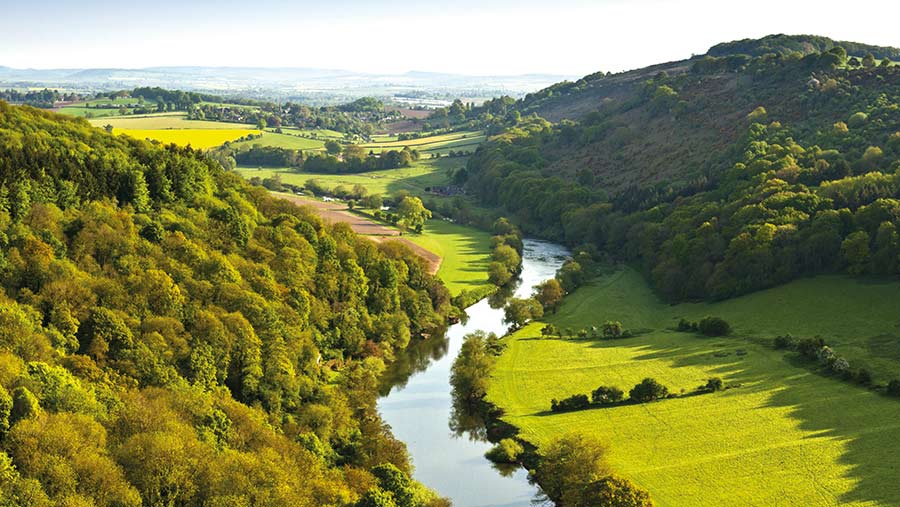New ‘roadmap’ from poultry processor to clean up River Wye
 © Travelwitness/Adobe Stock
© Travelwitness/Adobe Stock One of Britain’s largest poultry processors is to help its growers reduce any risk of phosphate run-off into the River Wye in a bold timetable of actions over the next two years.
Avara, which has 120 supplying farms within the River Wye catchment producing 160,000t of manure annually, wants more of its farmers to adopt technology that turns manure into heat and power by burning it on-farm.
See also: Poultry producer pledges to help clean up River Wye
Farmers will also be asked to process litter through one of three anaerobic digestion (AD) plants, including a new site planned near Ledbury capable of handling 600t/week, according to Avara’s new “2025 roadmap”.
Spreading litter on a producer’s own land will need to be done within a “robust nutrient soil and manure management framework’’.
Pressure
The US-owned company and others have come under pressure from river and wildlife campaigners after a 2020 study by Natural Resources Wales (NRW) found that more than half the River Wye failed to meet targets on pollution.
In its statement, Avara acknowledged that, if manure from its suppliers was applied incorrectly, excess phosphates could pollute the Wye through soil diffusion.
It wants the company and its suppliers to collaboratively take “full accountability for the phosphorus used in its processes”.
Egg producers Noble Foods and Stonegate and Tesco have also committed to taking action to help farmers reduce phosphate losses in the Wye.
Support
Radnorshire broiler producer Sharon Hammond, whose family supplies Avara with crops of 120,000 broilers, says she is “100% behind the plan”.
“I am so glad that we are growing for Avara because together we are leading the way on this, and the responsibility is not just left to us as individual growers. Avara is being very proactive and is very good at keeping us informed,” she said.
Mrs Hammond added that it made sense that Avara was leading on this and not farmers.
“It would be a huge undertaking for farmers to do this in isolation.”
Questions
While wildlife campaigners such as River Action have welcomed the initiative, its founder, Charles Watson, said Avara’s plan left many questions unanswered.
“What specific plans are there to end the massive import of phosphates into the catchment in the form of the huge quantities of phosphate-rich soy-based chicken feed from Avara’s parent company, Cargill?” he asked.
Radnorshire Wildlife Trust is also concerned about the focus on anaerobic digesters and associated environmental implications.
Chief executive James Hitchcock said the trust would like to see plans for buffering the river banks within the catchment, and confirmation that creating wetlands and natural solutions are in the pipeline.
